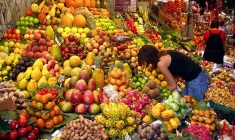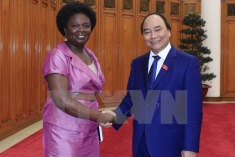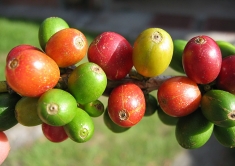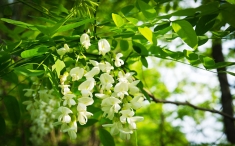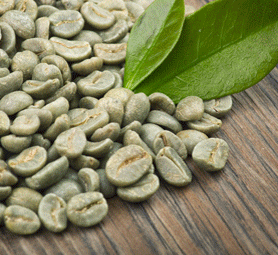
Administrator
Thank you to visit our website, for all the question please contact the administrator - General economic department.
Email: info@mascopex.com
Should Vietnam Be Focusing On Fruit Exports?
Tuesday, 18 October 2016 10:05Vietnamese leaders are being called on to rethink whether Vietnam should become a big rice exporter or a fruit export power, as fruit export turnover exceed rice exports in the first seven months of this year for the first time A newly released report by the General Department of Customs (GDC) shows that Vietnam earned $1.35 billion from fruit exports, but only had $1.32 billion from rice exports.
The figure, in the eyes of analysts, could be a shock to the Vietnamese, who have been proud of being one of the biggest rice exporters in the world.
To protect the title of the world’s biggest rice exporter, Vietnam has made heavy investments in the rice cultivation area, the labour force and in investment capital, far exceeding investment in fruit production.
Fruit production, a newly emerging field in the last few years, has quickly outstripped rice production, which has been receiving preferences for a long time.
Nguyen Quoc Vong, an agriculture expert, said on Thoi Bao Kinh Te Sai Gon that the superiority of fruit over rice export was foreseeable. The analyst, while noting that the rice export in the first months of the year was unsatisfactory because of the serious drought in the Mekong River Delta and the price decrease in the world market, said that the superiority is inevitable.
The fruit exports have been growing steadily in the last few years. In 2012, the fruit export turnover was $770 million only. Meanwhile, the figure soared to $1.04 billion 2013, to $1.47 billion in 2014 and $2.2 billion in 2015.
Just within four years, from 2012 to 2015, Vietnam’s fruit export value increased by three times. Meanwhile, the rice export value has not increased considerably in recent years, at around $2.7-2.8 billion a year.
“Why doesn’t Vietnam think of pushing up the export of fruits instead of rice if the world’s fruit market is larger?” the analyst said.
He cited a report of FAO as saying that in 2010, the world’s rice market was worth $17 billion, while the global fruit market was $97 billion.
If considering the total demand of different kinds fresh fruits & vegetables, as well as canned, dried & frozen products, the figure was $203 billion in 2014, and would be $320 billion by 2020, according to a Zion Research report.
(Tuoi Tre News)
New PM affirms continued cooperation with WB
Wednesday, 13 April 2016 10:42The Vietnamese Government will continue to tighten cooperation with the World Bank, especially in coping with climate change and saltwater intrusion, improving public administration and investment climate, and fighting corruption.
Prime Minister Nguyen Xuan Phuc, who was sworn in on April 7, made the remarks at a reception for World Bank (WB) Country Director in Vietnam Victoria Kwakwa in Hanoi on April 9.
He said Vietnam appreciates the effective support and consultation of the WB in general and Country Director Victoria Kwakwa in particular, and regards the bank as a reliable partner and great friend of the country.
The Government leader suggested the two sides increase the exchange of information to improve collaboration efficiency.
For her part, Victoria Kwakwa congratulated Nguyen Xuan Phuc on his election as Prime Minister and the National Assembly approval of the new Cabinet members.
She affirmed that the WB attaches importance to its cooperative ties with Vietnam and hopes the new PM will work to elevate bilateral cooperation to a new height.
The official noted that the WB is keen to cooperate with the Vietnamese Government in coping with climate change, developing the private economic sector, and enhancing the Government’s accountability and anti-corruption capacity.
She expressed her deep concern over the ongoing severe drought and saltwater intrusion in the Central Highlands and Mekong Delta, saying the WB has been supporting Vietnam to deal with the issues in the short and middle terms so that the country can adapt more effectively to climate change and mitigate related damages.
Regarding the development of the private economic sector, Kwakwa advised the Vietnamese Government to step up institutional reform and create an equal playground for all types of businesses, thus helping them connect with global value chains, especially when the country is making negotiations as well as preparations for joining a number of big free trade agreements.
The WB is willing to provide financial and expertise support for Vietnam to develop its private economic sector, she added.
(Image's description: Prime Minister Nguyen Xuan Phuc receives WB Country Director in Vietnam Victoria Kwakwa)
Coffee premiums narrow in Vietnam but rise in Indonesia
Tuesday, 29 March 2016 10:37HANOI - Coffee premiums in Vietnam narrowed as farmers held back stocks expecting a further jump in robusta prices, but were up in Indonesia on thin stocks and local demand, traders said on Thursday.
Premiums for Vietnamese robusta grade 2, 5 percent black and broken narrowed to $50-$60 a metric ton to the July ICE contract from $50-$70 a week ago.
Robusta rose to 31.5 million-31.8 million dong ($1,413.19-$1,426.65) per metric ton in Daklak, the country's top growing province, from 31.1 million-31.4 million dong last Thursday, tracking gains in the ICE robusta futures.
ICE May robusta coffee settled up 0.21 percent at $1,426 per metric ton on Wednesday.
"Sales are a bit slower today as farmers expect further climb in prices," said independent analyst Nguyen Quang Binh.
The dry season is at its peak in Vietnam's Central Highlands coffee belt, affecting nearly a fifth of the coffee farms, according to an industry report. The rainy season could arrive 10-15 days later than usual this year.
Vietnam, the world's largest robusta producer, exported 119,000 metric tons (1.98 million 60-kg bags) of coffee in February, down 30.1 percent from the previous month, customs data showed on Monday.
In Indonesia, premiums rose to $300-$350 a metric ton for beans grade 4, 80 defects <COFID-G4-USD> to the ICE May contract, from $300-$320 last Thursday, due to thin stocks, traders said.
"There is little in the way of stocks (but) there's high domestic demand from grinders in Java, along with exports by individuals," a Lampung-based trader said.
The country's main harvest will pick up from late March.
Indonesia's coffee bean production is expected to increase by up to 27 percent to 700,000 metric tons in 2016, a manager at the country's coffee association said on Thursday, up from 550,000 metric tons in 2015.
By My Pham/Reuters
How Vietnam Became A Coffee Giant
Tuesday, 29 March 2016 10:31When the Vietnam war ended in 1975 the country was on its knees, and economic policies copied from the Soviet union did nothing to help.
Collectivising agriculture proved to be a disaster, so in 1986 the Communist Party carried out a U-turn - placing a big bet, at the same time, on coffee.
Coffee production then grew by 20%-30% every year in the 1990s. The industry now employs about 2.6 million people, with beans grown on half a million smallholdings of two to three acres each.
This has helped transform the Vietnamese economy. In 1994 some 60% of Vietnamese lived under the poverty line, now less than 10% do.
"The Vietnamese traditionally drank tea, like the Chinese, and still do," says Vietnam-based coffee consultant Will Frith.
Vietnamese people do drink it - sometimes with condensed milk, or in a cappuccino made with egg - but it's mainly grown as an export crop.
Coffee was introduced to Vietnam by the French in the 19th Century and a processing plant manufacturing instant coffee was functioning by 1950.
This is how most Vietnamese coffee is consumed, and is partly why about a quarter of coffee drunk in the UK comes from Vietnam.
British consumers still drink a lot more of that than of fancy coffees, such as espressos, lattes and cappuccinos.
High-end coffee shops mainly buy Arabica coffee beans, whereas Vietnam grows the hardier Robusta bean.
Arabica beans contain between 1% to 1.5% caffeine while Robusta has between 1.6% to 2.7% caffeine, making it taste more bitter.
There is a lot more to coffee, though, than caffeine.
"Complex flavour chemistry works to make up the flavours inherent in coffee," says Frith.
"Caffeine is such a small percentage of total content, especially compared to other alkaloids, that it has a very minute effect on flavour."
Some companies, like Nestle, have processing plants in Vietnam, which roast the beans and pack it.
But Thomas Copple, an economist at the International Coffee Organization in London, says most is exported as green beans and then processed elsewhere, in Germany for example.
While large numbers of Vietnamese have made a living from coffee, a few have become very rich.
Take for example multi-millionaire Dang Le Nguyen Vu. His company, Trung Nguyen Corporation, is based in Ho Chi Minh City - formerly Saigon - but his wealth is based in the Central Highlands around Buon Ma Thuot, the country's coffee capital.
Chairman Vu, as he is nicknamed, owns five Bentleys and 10 Ferraris and Forbes magazine assessed him to be worth $100m (£60m). That's in a country where the average annual income is $1,300 (£790).
The expansion of coffee has also had downsides, however.
Agricultural activity of any kind holds hidden dangers in Vietnam, because of the huge numbers of unexploded ordnance remaining in the ground after the Vietnam War. In one province, Quang Tri, 83% of fields are thought to contain bombs.
Environmentalists also warn that catastrophe is looming. WWF estimates that 40,000 square miles of forest have been cut down since 1973, some of it for coffee farms, and experts say much of the land used for coffee cultivation is steadily being exhausted.
Vietnamese farmers are using too much water and fertiliser, says Dr Dave D'Haeze, a Belgian soil expert.
"There's this traditional belief that you need to do that and nobody has really been trained on how to produce coffee," he says.
"Every farmer in Vietnam is the researcher of his own plot."
Some people from Vietnam's many ethnic minorities also say they have been forced off their land.
But Chairman Vu says coffee has been good for Vietnam.
He is now planning to set up an international chain of Vietnamese-style coffee shops.
"We want to bring Vietnamese coffee culture to the world. It isn't going to be easy but in the next year we want to compete with the big brands like Starbucks," he says.
"If we can take on and win over the US market we can conquer the whole world."
BBC
VIDEO CLIP

" MASCOPEX Joint Stock Company has been striving to become the Top Prestige –Trust – Quality in the fields of import & export Agricultural Product. "


